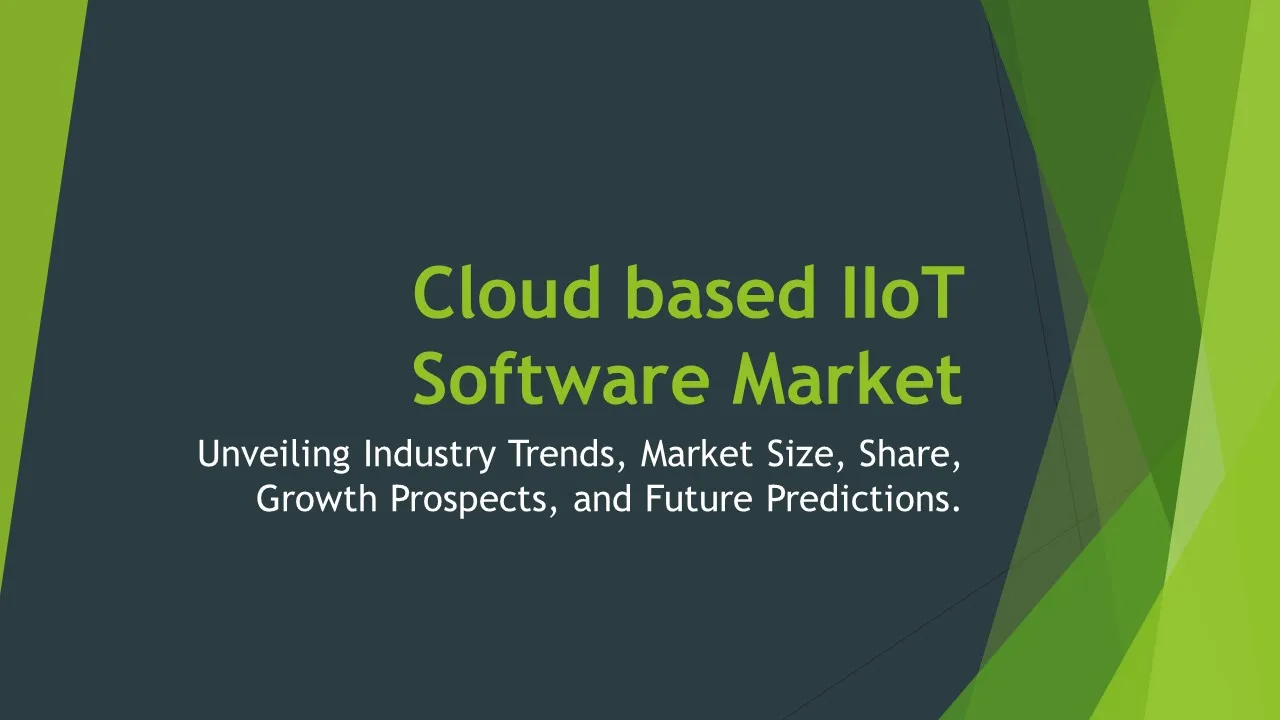Identity Governance and Administration
Identity Governance and Administration Market Segments - by Product Type (Identity Governance, Identity Administration, Identity Analytics, Access Management, Role Management), Application (BFSI, IT & Telecom, Healthcare, Government, Retail), Distribution Channel (Direct Sales, Indirect Sales), Deployment Mode (Cloud-based, On-premises), and Region (North America, Europe, Asia Pacific, Latin America, Middle East & Africa) - Global Industry Analysis, Growth, Share, Size, Trends, and Forecast 2025-2035
- Report Preview
- Table Of Content
- Segments
- Methodology
Identity Governance and Administration Market Outlook
The global Identity Governance and Administration (IGA) market is poised for significant growth, projected to reach USD 12.4 billion by 2035, expanding at a compound annual growth rate (CAGR) of 12.1% during the forecast period from 2025 to 2035. This growth is driven by the increasing need for organizations to ensure regulatory compliance and mitigate security risks associated with identity management. The emergence of stringent data protection regulations, such as GDPR and HIPAA, has further underscored the necessity for robust identity governance solutions. Additionally, the rising prevalence of cyber threats and identity fraud has prompted organizations across various sectors to invest heavily in comprehensive identity governance frameworks. The integration of advanced technologies like AI and machine learning into identity management systems is also a significant factor contributing to market growth, as these technologies enhance the efficiency and effectiveness of identity governance processes.
Growth Factor of the Market
Several factors are driving the growth of the Identity Governance and Administration market. Firstly, the increasing adoption of cloud-based services has facilitated the implementation of advanced IGA solutions, allowing organizations to streamline their identity management processes. Secondly, the heightened awareness around data privacy and compliance has led to businesses prioritizing identity governance as a crucial part of their operational strategy. Furthermore, the shift towards digital transformation across various sectors is compelling organizations to adopt automated solutions for managing user identities and access permissions. The rising incidences of data breaches and insider threats have also emphasized the need for effective identity governance practices, thereby fueling market demand. Additionally, the growing emphasis on user-centric approaches in identity management is encouraging the development of innovative IGA solutions that cater to diverse user needs.
Key Highlights of the Market
- The market is expected to witness a CAGR of 12.1% from 2025 to 2035.
- Cloud-based deployment is gaining popularity due to its scalability and cost-effectiveness.
- Regulatory compliance remains a primary driver for identity governance solutions.
- Advanced technologies, such as AI and machine learning, are being increasingly integrated into IGA solutions.
- The BFSI sector is among the largest adopters of identity governance solutions due to stringent regulatory requirements.
By Product Type
Identity Governance :
Identity Governance solutions are pivotal in ensuring that organizations have the right controls in place to manage user identities effectively. These solutions facilitate comprehensive visibility into user access rights and help organizations enforce policies that govern user access. The growing complexity of IT environments, characterized by hybrid and multi-cloud infrastructures, has driven the demand for identity governance solutions. By automating the processes of access certification and policy enforcement, organizations can mitigate risks associated with unauthorized access and enhance compliance with regulatory mandates. This segment is witnessing robust growth as organizations prioritize identity governance as a fundamental component of their cybersecurity strategy to protect sensitive data and resources.
Identity Administration :
Identity Administration solutions focus on the lifecycle management of user identities, including provisioning, de-provisioning, and managing access rights across applications and systems. This segment is gaining traction as organizations recognize the importance of automating identity management processes to improve operational efficiency and reduce administrative overhead. The increased remote working environment has further amplified the need for robust identity administration solutions, ensuring that users have appropriate access to resources while maintaining security protocols. By streamlining identity administration, organizations can enhance user experience and minimize the risk of security breaches associated with mismanaged access rights.
Identity Analytics :
Identity Analytics is an emerging segment within the IGA market that leverages data analytics to provide insights into user behavior and access patterns. Organizations are increasingly adopting identity analytics to identify anomalies, detect potential threats, and enhance overall security posture. By harnessing data from various sources, these solutions enable organizations to perform risk assessments, ensuring that access rights are aligned with users' roles and responsibilities. The ability to proactively monitor and analyze user activity is invaluable in preventing insider threats and ensuring compliance with regulations. As businesses become more data-driven, the demand for identity analytics solutions is expected to grow significantly, offering organizations the intelligence needed to make informed decisions regarding identity governance.
Access Management :
Access Management solutions play a critical role in ensuring that users have secure and appropriate access to applications and data. This segment is essential as organizations strive to balance security with user convenience, particularly in an era where remote work has become prevalent. Access management solutions encompass authentication, authorization, and identity federation, enabling organizations to implement strong security measures without hindering user productivity. The rise of identity-as-a-service (IDaaS) offerings is facilitating the adoption of access management solutions, providing organizations with scalable options to manage user access effectively. This segment is witnessing continuous innovation, with advancements in biometric authentication and adaptive security measures to enhance access control capabilities.
Role Management :
Role Management is a crucial aspect of IGA that focuses on defining and managing user roles within an organization. By establishing clear role definitions, organizations can streamline the process of granting access rights and ensure that users have only the permissions necessary to perform their job functions. This minimizes the risk of over-provisioning and enhances the overall security framework. The increasing complexity of organizational structures and regulatory requirements has intensified the need for effective role management solutions. Organizations are investing in automated role management tools to facilitate role-based access control, ensuring compliance while optimizing operational efficiency. As enterprises adopt more granular access controls, the demand for role management solutions is expected to grow substantially.
By Application
BFSI :
The Banking, Financial Services, and Insurance (BFSI) sector is one of the most significant adopters of identity governance and administration solutions. With the high volume of sensitive financial data and stringent regulatory compliance requirements, organizations in this sector are compelled to implement robust identity governance frameworks. Solutions designed specifically for BFSI help in managing customer identities, preventing identity theft, and ensuring secure transactions. Regulatory bodies often impose strict guidelines on identity verification and access controls, further driving the demand for IGA solutions in this industry. The increasing digitization of financial services and the rise of online banking have also accelerated the need for comprehensive identity governance to protect against fraud and ensure customer trust.
IT & Telecom :
The IT and Telecom sector is experiencing rapid growth in the adoption of identity governance and administration solutions due to the increasing need for security and compliance. With the expansion of cloud computing and mobile technologies, organizations in this sector are managing vast amounts of user data, making effective identity management imperative. IGA solutions in this sector help organizations streamline access to services, manage user credentials, and ensure compliance with industry regulations. The complexity of user identities in large IT environments necessitates automated solutions that can efficiently manage access rights and enhance the overall security posture. The ongoing trend of digital transformation is further amplifying the demand for IGA solutions within the IT and Telecom sector.
Healthcare :
In the healthcare sector, identity governance and administration solutions are critical for ensuring the privacy and security of patient data. Regulatory frameworks such as HIPAA mandate strict controls on access to patient information, driving the need for robust IGA solutions. Healthcare organizations are investing in identity governance to manage user access to electronic health records (EHRs) and other sensitive information securely. The rise of telemedicine and digital health platforms has also intensified the importance of identity management in healthcare, as organizations must ensure that only authorized personnel have access to patient data. As healthcare increasingly relies on technology for patient care, the demand for effective IGA solutions is expected to grow significantly.
Government :
Government agencies are increasingly adopting identity governance and administration solutions to enhance security and comply with regulatory mandates. With the vast amounts of sensitive citizen data managed by government organizations, effective identity management is essential to prevent data breaches and misuse. IGA solutions enable government entities to streamline access controls, enforce security policies, and maintain compliance with various regulations. The growing emphasis on digital services and e-government initiatives further emphasizes the need for robust identity governance frameworks. As government agencies strive to improve transparency and accountability, the demand for IGA solutions is expected to rise, driving innovation in the sector.
Retail :
The retail sector is witnessing a surge in the adoption of identity governance and administration solutions as businesses seek to protect customer data and enhance operational efficiency. With the rise of e-commerce and digital payment platforms, retailers must ensure that customer identities are managed securely. Identity governance solutions help in managing user access to sensitive customer information, ensuring compliance with data protection regulations. Additionally, retailers are leveraging IGA solutions to optimize operational processes, manage employee access to systems, and prevent fraud. The increasing focus on customer experience and personalized services is driving the demand for effective identity governance in the retail industry.
By Distribution Channel
Direct Sales :
Direct sales remain a prominent distribution channel for identity governance and administration solutions. Many organizations prefer to engage directly with IGA solution providers to ensure that they receive tailored solutions that meet their specific needs. This channel allows for personalized consultations, where vendors can assess an organization’s unique requirements and provide customized implementations. Furthermore, direct sales foster a strong relationship between the vendor and the client, facilitating better support, training, and overall service satisfaction. The direct engagement also enables organizations to have more control over the procurement process, ensuring that their identity governance solutions align perfectly with their security strategies and compliance obligations.
Indirect Sales :
Indirect sales channels, including partnerships with resellers and system integrators, are increasingly becoming important for the distribution of identity governance and administration solutions. This approach allows solution providers to leverage the existing relationships and expertise of their partners within various industries. Indirect sales can expand the reach of IGA solutions to a broader audience, enabling smaller organizations or those in niche markets to access advanced identity management technology. Additionally, indirect channels can offer bundled services, where identity governance solutions are packaged with other IT services, providing a comprehensive solution to address the specific needs of organizations. This collaborative approach enhances the market reach of IGA providers while delivering value-added services to customers.
By Deployment Mode
Cloud-based :
Cloud-based deployment is rapidly gaining traction in the Identity Governance and Administration market due to its scalability, flexibility, and cost-effectiveness. Organizations are increasingly opting for cloud solutions as they eliminate the need for extensive on-premises infrastructure, allowing for reduced operational costs and easier maintenance. Cloud-based IGA solutions provide organizations with the ability to access and manage identity governance processes from anywhere, making them particularly attractive in today’s remote work environment. This deployment mode also facilitates seamless integration with other cloud-based applications and services, streamlining identity management across various platforms. The increasing trend of digital transformation and the shift towards Software-as-a-Service (SaaS) models are expected to further accelerate the growth of cloud-based identity governance solutions.
On-premises :
On-premises deployment remains a viable option for organizations that require greater control over their identity governance and administration processes. Many businesses, especially those in highly regulated industries such as BFSI and healthcare, prefer on-premises solutions to maintain strict security controls and compliance with regulatory requirements. On-premises deployment allows organizations to customize their IGA solutions according to their specific needs and policies, providing a tailored approach to identity management. However, this option often requires significant investment in hardware and ongoing maintenance, which may deter some organizations from choosing this path. Nevertheless, for those that prioritize security and compliance above all, on-premises deployment continues to be an attractive choice in the identity governance landscape.
By Region
The North American region is currently leading the Identity Governance and Administration market, accounting for approximately 40% of the global market share. The presence of a robust IT infrastructure, coupled with a high adoption rate of advanced technologies, has positioned North America as a key player in the IGA sector. Additionally, stringent regulatory frameworks and a growing emphasis on data protection and privacy have further fueled market demand in this region. The projected CAGR for the North American IGA market stands at 11.5%, reflecting the continual investment in identity governance solutions by organizations to strengthen their security posture and comply with regulations.
Europe is expected to follow closely, holding around 30% of the global market share, driven by similar regulatory pressures and increasing cyber threats. The European Union's General Data Protection Regulation (GDPR) has significantly influenced the adoption of identity governance solutions among organizations in the region, mandating compliance and strict data protection measures. The projected CAGR for the European IGA market is estimated at 10.7%, indicating consistent growth as organizations adopt sophisticated identity governance strategies to protect sensitive information and ensure compliance with evolving regulations. Meanwhile, the Asia Pacific region is rapidly emerging as a lucrative market, with increasing investments in digital transformation and cloud technologies, anticipated to drive the demand for IGA solutions significantly.
Opportunities
The Identity Governance and Administration market presents numerous opportunities for growth, particularly in the realm of advanced technologies. The integration of artificial intelligence (AI) and machine learning (ML) into identity governance solutions is revolutionizing the way organizations manage user identities and access permissions. These technologies enable organizations to automate processes, enhance security through predictive analytics, and provide insights into user behavior, which can lead to better-informed decision-making. As organizations increasingly recognize the value of AI-driven identity governance, the demand for innovative solutions is likely to grow, providing vendors with opportunities to develop cutting-edge offerings that address emerging challenges in identity management.
Another significant opportunity lies in the growing emphasis on remote work and digital transformation. The shift to remote and hybrid work environments has heightened the importance of secure identity governance solutions that can accommodate flexible access controls and multi-cloud environments. Organizations are seeking solutions that can provide seamless access to applications while ensuring that security protocols are maintained. This trend is expected to drive the demand for scalable and flexible IGA solutions that can be easily integrated into diverse IT ecosystems. Vendors who can respond effectively to these evolving needs will be well-positioned to capitalize on the expanding market opportunities in the identity governance landscape.
Threats
Despite the positive outlook for the Identity Governance and Administration market, several threats could impact its growth trajectory. One of the primary threats is the increasing sophistication of cyberattacks, as malicious actors continually develop new strategies to breach security systems. As organizations implement identity governance solutions, they must remain vigilant against emerging threats, which requires continuous updates and enhancements to their security measures. The potential for data breaches can undermine the effectiveness of IGA solutions and lead to significant financial and reputational damage for organizations. This ongoing cybersecurity challenge necessitates that IGA providers stay ahead of the curve in terms of security innovations to effectively safeguard against evolving threats.
Additionally, the complexity of regulatory compliance may pose challenges for organizations implementing identity governance solutions. As regulations evolve and new compliance requirements emerge, organizations must ensure that their identity governance frameworks can adapt accordingly. Failure to maintain compliance can result in hefty fines and legal ramifications. Moreover, organizations may face difficulties in managing the diverse and dynamic nature of user identities, particularly in large enterprises with multiple systems and applications. As such, the need for IGA solutions that can address these complexities while ensuring compliance remains a critical challenge for organizations in the market.
Competitor Outlook
- IBM Corporation
- Microsoft Corporation
- Oracle Corporation
- SailPoint Technologies Holdings, Inc.
- Okta, Inc.
- CyberArk Software Ltd.
- OneLogin, Inc.
- ForgeRock, Inc.
- Micro Focus International plc
- Ping Identity Corporation
- RSA Security LLC
- Broadcom Inc.
- Gartner, Inc.
- CA Technologies (Broadcom Inc.)
- NetIQ (Micro Focus International plc)
The competitive landscape of the Identity Governance and Administration market is characterized by a diverse array of players, ranging from established tech giants to innovative startups. Companies like IBM, Microsoft, and Oracle are well-recognized leaders in the IGA space, offering comprehensive solutions that integrate identity governance with their broader security and cloud services. These companies leverage their vast resources, extensive research and development capabilities, and established customer bases to maintain a competitive edge. Moreover, their ability to provide integrated solutions that encompass various aspects of identity management, security, and compliance positions them favorably in the market.
Startups and niche players, such as SailPoint and Okta, are also gaining traction by focusing on delivering innovative, cloud-based identity governance solutions that cater to the evolving needs of modern organizations. These companies often emphasize user experience and flexibility, appealing to businesses seeking agile and scalable identity management solutions. Their focus on automation and AI-driven analytics allows them to differentiate themselves from larger competitors, enabling them to capture market share in specific segments, particularly among small and medium-sized enterprises (SMEs).
As the market continues to evolve, strategic partnerships and collaborations among companies are becoming increasingly common. For instance, partnerships between IGA vendors and cloud service providers are creating complementary offerings that enhance the overall value proposition for customers. Companies are also investing in mergers and acquisitions to broaden their product portfolios and expand their market presence. Major players are also increasingly focusing on enhancing their offerings with advanced technologies, such as AI, to improve threat detection and automate identity management processes, further intensifying the competition within the market.
1 Appendix
- 1.1 List of Tables
- 1.2 List of Figures
2 Introduction
- 2.1 Market Definition
- 2.2 Scope of the Report
- 2.3 Study Assumptions
- 2.4 Base Currency & Forecast Periods
3 Market Dynamics
- 3.1 Market Growth Factors
- 3.2 Economic & Global Events
- 3.3 Innovation Trends
- 3.4 Supply Chain Analysis
4 Consumer Behavior
- 4.1 Market Trends
- 4.2 Pricing Analysis
- 4.3 Buyer Insights
5 Key Player Profiles
- 5.1 Okta, Inc.
- 5.1.1 Business Overview
- 5.1.2 Products & Services
- 5.1.3 Financials
- 5.1.4 Recent Developments
- 5.1.5 SWOT Analysis
- 5.2 Broadcom Inc.
- 5.2.1 Business Overview
- 5.2.2 Products & Services
- 5.2.3 Financials
- 5.2.4 Recent Developments
- 5.2.5 SWOT Analysis
- 5.3 Gartner, Inc.
- 5.3.1 Business Overview
- 5.3.2 Products & Services
- 5.3.3 Financials
- 5.3.4 Recent Developments
- 5.3.5 SWOT Analysis
- 5.4 OneLogin, Inc.
- 5.4.1 Business Overview
- 5.4.2 Products & Services
- 5.4.3 Financials
- 5.4.4 Recent Developments
- 5.4.5 SWOT Analysis
- 5.5 ForgeRock, Inc.
- 5.5.1 Business Overview
- 5.5.2 Products & Services
- 5.5.3 Financials
- 5.5.4 Recent Developments
- 5.5.5 SWOT Analysis
- 5.6 IBM Corporation
- 5.6.1 Business Overview
- 5.6.2 Products & Services
- 5.6.3 Financials
- 5.6.4 Recent Developments
- 5.6.5 SWOT Analysis
- 5.7 RSA Security LLC
- 5.7.1 Business Overview
- 5.7.2 Products & Services
- 5.7.3 Financials
- 5.7.4 Recent Developments
- 5.7.5 SWOT Analysis
- 5.8 Oracle Corporation
- 5.8.1 Business Overview
- 5.8.2 Products & Services
- 5.8.3 Financials
- 5.8.4 Recent Developments
- 5.8.5 SWOT Analysis
- 5.9 Microsoft Corporation
- 5.9.1 Business Overview
- 5.9.2 Products & Services
- 5.9.3 Financials
- 5.9.4 Recent Developments
- 5.9.5 SWOT Analysis
- 5.10 CyberArk Software Ltd.
- 5.10.1 Business Overview
- 5.10.2 Products & Services
- 5.10.3 Financials
- 5.10.4 Recent Developments
- 5.10.5 SWOT Analysis
- 5.11 Ping Identity Corporation
- 5.11.1 Business Overview
- 5.11.2 Products & Services
- 5.11.3 Financials
- 5.11.4 Recent Developments
- 5.11.5 SWOT Analysis
- 5.12 Micro Focus International plc
- 5.12.1 Business Overview
- 5.12.2 Products & Services
- 5.12.3 Financials
- 5.12.4 Recent Developments
- 5.12.5 SWOT Analysis
- 5.13 CA Technologies (Broadcom Inc.)
- 5.13.1 Business Overview
- 5.13.2 Products & Services
- 5.13.3 Financials
- 5.13.4 Recent Developments
- 5.13.5 SWOT Analysis
- 5.14 NetIQ (Micro Focus International plc)
- 5.14.1 Business Overview
- 5.14.2 Products & Services
- 5.14.3 Financials
- 5.14.4 Recent Developments
- 5.14.5 SWOT Analysis
- 5.15 SailPoint Technologies Holdings, Inc.
- 5.15.1 Business Overview
- 5.15.2 Products & Services
- 5.15.3 Financials
- 5.15.4 Recent Developments
- 5.15.5 SWOT Analysis
- 5.1 Okta, Inc.
6 Market Segmentation
- 6.1 Identity Governance and Administration Market, By Product Type
- 6.1.1 Identity Governance
- 6.1.2 Identity Administration
- 6.1.3 Identity Analytics
- 6.1.4 Access Management
- 6.1.5 Role Management
- 6.2 Identity Governance and Administration Market, By Deployment Mode
- 6.2.1 Cloud-based
- 6.2.2 On-premises
- 6.3 Identity Governance and Administration Market, By Distribution Channel
- 6.3.1 Direct Sales
- 6.3.2 Indirect Sales
- 6.1 Identity Governance and Administration Market, By Product Type
7 Competitive Analysis
- 7.1 Key Player Comparison
- 7.2 Market Share Analysis
- 7.3 Investment Trends
- 7.4 SWOT Analysis
8 Research Methodology
- 8.1 Analysis Design
- 8.2 Research Phases
- 8.3 Study Timeline
9 Future Market Outlook
- 9.1 Growth Forecast
- 9.2 Market Evolution
10 Geographical Overview
- 10.1 Europe - Market Analysis
- 10.1.1 By Country
- 10.1.1.1 UK
- 10.1.1.2 France
- 10.1.1.3 Germany
- 10.1.1.4 Spain
- 10.1.1.5 Italy
- 10.1.1 By Country
- 10.2 Asia Pacific - Market Analysis
- 10.2.1 By Country
- 10.2.1.1 India
- 10.2.1.2 China
- 10.2.1.3 Japan
- 10.2.1.4 South Korea
- 10.2.1 By Country
- 10.3 Latin America - Market Analysis
- 10.3.1 By Country
- 10.3.1.1 Brazil
- 10.3.1.2 Argentina
- 10.3.1.3 Mexico
- 10.3.1 By Country
- 10.4 North America - Market Analysis
- 10.4.1 By Country
- 10.4.1.1 USA
- 10.4.1.2 Canada
- 10.4.1 By Country
- 10.5 Middle East & Africa - Market Analysis
- 10.5.1 By Country
- 10.5.1.1 Middle East
- 10.5.1.2 Africa
- 10.5.1 By Country
- 10.6 Identity Governance and Administration Market by Region
- 10.1 Europe - Market Analysis
11 Global Economic Factors
- 11.1 Inflation Impact
- 11.2 Trade Policies
12 Technology & Innovation
- 12.1 Emerging Technologies
- 12.2 AI & Digital Trends
- 12.3 Patent Research
13 Investment & Market Growth
- 13.1 Funding Trends
- 13.2 Future Market Projections
14 Market Overview & Key Insights
- 14.1 Executive Summary
- 14.2 Key Trends
- 14.3 Market Challenges
- 14.4 Regulatory Landscape
Segments Analyzed in the Report
The global Identity Governance and Administration market is categorized based on
By Product Type
- Identity Governance
- Identity Administration
- Identity Analytics
- Access Management
- Role Management
By Distribution Channel
- Direct Sales
- Indirect Sales
By Deployment Mode
- Cloud-based
- On-premises
By Region
- North America
- Europe
- Asia Pacific
- Latin America
- Middle East & Africa
Key Players
- IBM Corporation
- Microsoft Corporation
- Oracle Corporation
- SailPoint Technologies Holdings, Inc.
- Okta, Inc.
- CyberArk Software Ltd.
- OneLogin, Inc.
- ForgeRock, Inc.
- Micro Focus International plc
- Ping Identity Corporation
- RSA Security LLC
- Broadcom Inc.
- Gartner, Inc.
- CA Technologies (Broadcom Inc.)
- NetIQ (Micro Focus International plc)
- Publish Date : Jan 21 ,2025
- Report ID : IT-69420
- No. Of Pages : 100
- Format : |
- Ratings : 4.5 (110 Reviews)
Related reports









